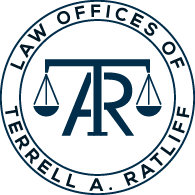Losing a professional license can be devastating. For doctors, nurses, attorneys, teachers, and other licensed professionals, a revoked or suspended license doesn’t just affect their ability to work—it can damage their reputation, livelihood, and future.
At the Law Office of Terrell A. Ratliff, we represent clients in New Jersey and Pennsylvania facing professional license investigations and disciplinary actions. Understanding the most common reasons professionals lose their licenses is the first step toward protecting your career.
Here are the top causes of license loss—and how you can avoid them.
1. Substance Abuse or DUI Offenses
Why it leads to discipline:
Many licensing boards see substance abuse—especially when paired with a DUI arrest—as a red flag indicating a potential danger to the public.
How to avoid it:
- Seek help if you’re struggling with alcohol or drugs.
- Participate in voluntary monitoring or treatment programs.
- Be proactive—some boards offer confidential recovery programs to help licensed professionals get back on track.
2. Criminal Convictions
Why it leads to discipline:
Even if a crime is unrelated to your job, boards often view criminal conduct as a reflection of your character and judgment.
Common examples:
- Theft
- Domestic violence
- Assault
- Fraud
How to avoid it:
- Stay out of legal trouble and know how your actions off the job can affect your license.
- If you’re charged, contact a license defense attorney immediately to prepare for any disciplinary response.
3. Ethical Violations and Misconduct
Why it leads to discipline:
Licensing boards expect high ethical standards. Violations—like dishonesty, boundary violations, or abuse of power—can quickly trigger formal complaints and investigations.
Examples include:
- Sexual misconduct with clients or patients
- Falsifying records
- Conflicts of interest
How to avoid it:
- Follow your profession’s code of ethics closely.
- Maintain appropriate boundaries in professional relationships.
- If you’re unsure whether something is ethically questionable, consult a supervisor or legal counsel.
4. Negligence or Substandard Care
Why it leads to discipline:
In healthcare and other licensed fields, providing poor service or making serious errors can be grounds for disciplinary action.
Examples include:
- Failing to meet the standard of care
- Overprescribing medications
- Making preventable mistakes in treatment
How to avoid it:
- Stay up to date with continuing education.
- Follow protocols and document everything.
- Seek second opinions when appropriate.
5. Documentation and Recordkeeping Issues
Why it leads to discipline:
Improper documentation can lead to allegations of fraud, negligence, or misrepresentation—even if the mistake was unintentional.
Common pitfalls include:
- Incomplete or missing records
- Billing inaccuracies
- Altering records after the fact
How to avoid it:
- Maintain accurate, timely, and honest records.
- Review documentation procedures regularly.
- Don’t take shortcuts when it comes to recordkeeping.
6. Violations of Board Orders or Probation Terms
Why it leads to discipline:
If your license was previously disciplined and you fail to follow the conditions set by the board, they may impose harsher penalties, including revocation.
How to avoid it:
- Take probation and monitoring requirements seriously.
- Meet all deadlines and document your compliance.
- Work with your attorney to ensure full and timely adherence to board directives.
7. Fraud and Misrepresentation
Why it leads to discipline:
Lying on a license application, falsifying credentials, or billing for services not rendered can result in immediate suspension or revocation.
How to avoid it:
- Be honest and transparent on all licensing forms.
- Ensure your billing practices are compliant with industry standards.
- If you discover errors or issues, correct them and notify your employer or licensing board appropriately.
Protect Your License Before It’s Too Late
Losing your license doesn’t happen overnight. It often begins with a single complaint or error that snowballs into a full investigation. But with the right approach—and the right legal support—you can avoid many of the pitfalls that lead professionals down that path.
At the Law Office of Terrell A. Ratliff, we help professionals respond to complaints, defend against investigations, and keep their careers intact. If you’ve received a notice from your licensing board or are concerned about an issue that could impact your license, contact us today.
